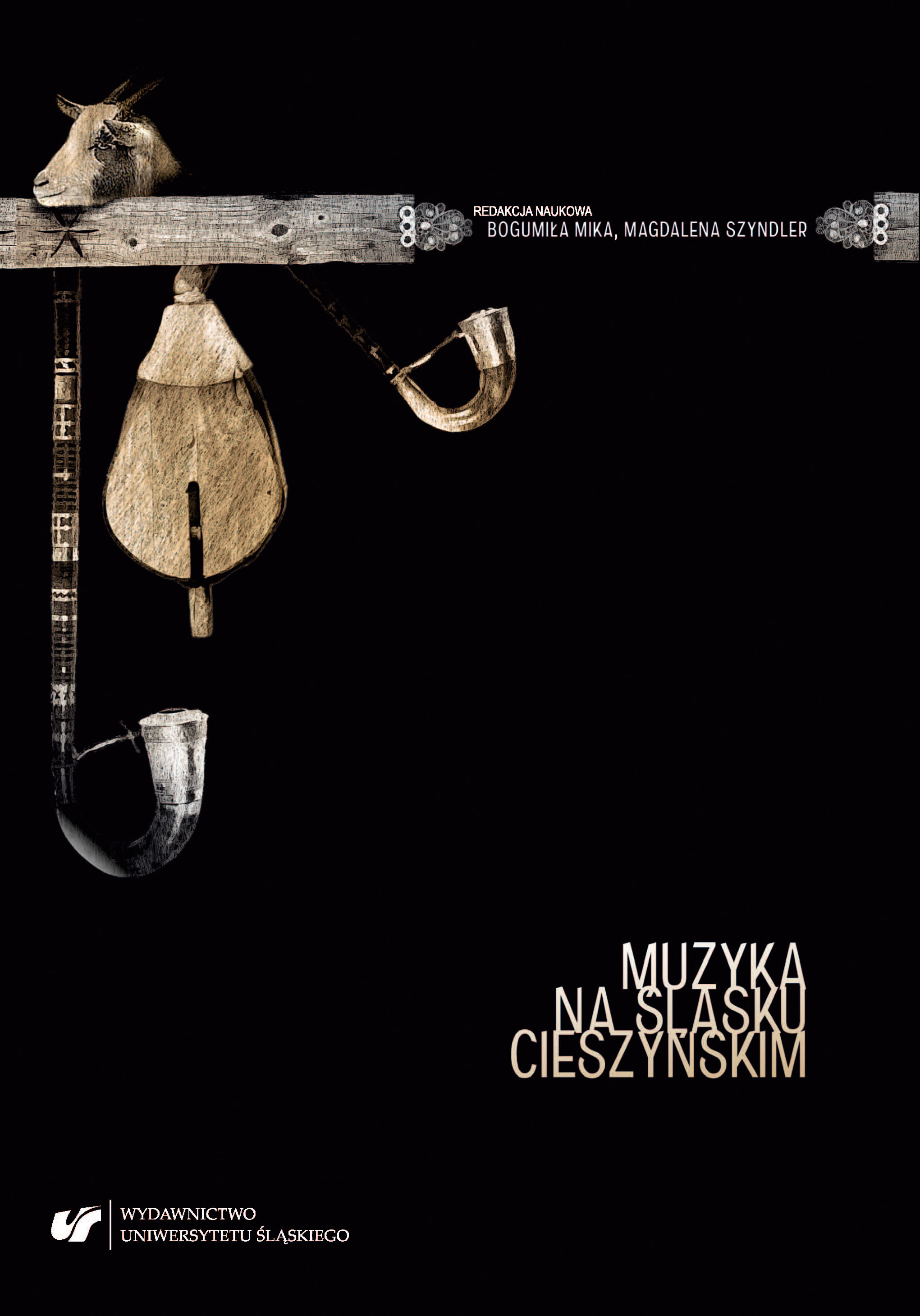Muzyczne tradycje wiślańskich luteranów
The musical traditions of Wisła Lutherans
Author(s): Arleta Nawrocka-Wysocka
Subject(s): Music
Published by: Wydawnictwo Uniwersytetu Śląskiego
Keywords: Lutherans; the Evangelical Church of the Augsburg Confession; Wisła; hymnal song;folk tradition;
Summary/Abstract: For the residents of Wisła, the basis of identity is associated with both Silesianness as well as the Lutheran faith, therefore in the article the musical tradition is presented as a whole which involves both the religious and the folk sphere. Almost from its inception Wisła remained the only place which was inhabited by an Evangelical majority. In spite of this, the research works and the sources always treated the two trends of tradition – the religious and the folk one – separately. Even though the collectors and the field researchers were aware of the different religion of the residents of Wisła, they usually confined their records and sketches exclusively to the folk legacy. The gap in the knowledge of the religious repertoire was partially filled in by the field research conducted by the author in the years 2006–2008 within the framework of the realisation of a research project. The most interesting and the one which reflects the religious diversity of the residents of Wisła best is the ceremony-related repertoire – both the religious and the secular one. The annual ceremony-related annual cycle which occurs in Wisła was subordinated, on the one hand, to the progression of the seasons of the year, one the other hand to the calendar which was introduced by the Evangelical Church of the Augsburg Confession. Both of these rhythms exist in mutual harmony and they complement each other perfectly, determining the day-to-day life of the residents. An exceptional phenomenon, which is peculiar exclusively to this region (and therefore also Wisła itself), was associated with the singing of table songs before the Christmas Eve supper and after it. This custom distinguished the Evangelical community of Śląsk Cieszyński not only from the Catholic neighbours but also from Evangelicals in the remaining parts of the country.On the basis of instances of comparison we may conclude that on the custom-related plane the influences of Evangelicalism brought about the reduction of the number of folk customs, the limitations of the number of props and decorations and the simplification of the dramatic course of ceremonies. The ceremonies associated with magic (such as the so-called drowning of the marzanna, sobótki) were eliminated almost completely from the set of annual celebrations of the Evangelical community.Whereas in the early years the folk ceremonies and religious customs functioned in a natural manner, nowadays the maintenance of tradition requires special effort and care. Such a role of guardians of tradition is performed mainly by the senior residents of Wisła who raise new generations in the Cieszyn and Evangelical spirit and who present departing customs in the forum of the parish or at the stage during festivals. A peculiar custom was associated with the singing and the performance by means of the trombita of both secular pieces – usually pastoral ones – as well as religious hymns.The fact that many religious and secular songs shared a common context, for they were performed alongside each other during annual ceremonies, family customs, the performance of daily chores and social meetings, exerted an influence on the form and the style of the performance of the said songs. A narrow ambitus and the pentachordal scale, sometimes extended by an additional fifth or seventh, is peculiar to folk songs, especially those which were recorder in the 1950s and which were written in the sources. A relatively large group of melodies also represents modal church scales – especially the Aeolian, Phrygian and Ionic ones. Some religious and folk melodies also feature cadence-related similarity. Moreover, it seems that the tempo of the performance of both repertoires was similar – it was very slow and it tempted the performance to adorn the melodic line with melisma. The modern performer who attempts to nurture the syncretic form of it, is continuously forced to make a choice. Especially women, in their own field, are reluctant to perform secular repertoire lest they incur a negative attitude on the part of the conservative Lutheran community. Doubts also continuously accompany Wisła songsters when they choose their repertoire to be performed at the regional or state-wide festivals. They do not decide to present “pieśniczki z kancenoła” on the stage, for the latter, qualified by the committee to be “non-folk”, became a source of embarrassment and they present problems in terms of evaluation.
Book: Muzyka na Śląsku Cieszyńskim
- Page Range: 59-68
- Page Count: 10
- Publication Year: 2018
- Language: Polish
- Content File-PDF

